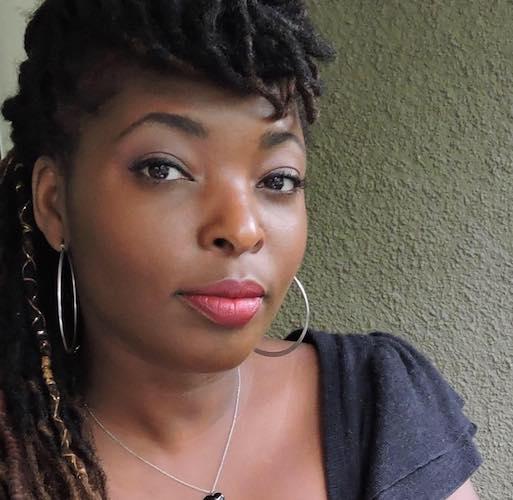
Section Branding
Header Content
Georgia Today: Delta workers union; Ebenezer Church could become World Heritage site; Book author
Primary Content
LISTEN: On the Thursday, July 18 edition of Georgia Today: Delta is the only major U.S. airline where most workers are not in a union, but some are hoping to change that; an iconic Atlanta church may soon be a UNESCO World Heritage site; and best-selling author, and former GPB host, Denene Milner joins the podcast to talk about her latest book.

Peter Biello: Welcome to the Georgia Today podcast from GPB News. Today is Thursday, July 18. I'm Peter Biello. On today's episode: Delta is the only major U.S. airline where most workers are not in a union, but some are hoping the change that. An iconic Atlanta church may soon be a UNESCO World Heritage Site; and bestselling author and former GPB host Denene Milner joins the podcast to talk about her latest book. These stories and more are coming up on this edition of Georgia Today.
Story 1:
Peter Biello: Delta Air Lines ramp workers and their supporters gathered near Hartsfield-Jackson International Airport yesterday to rally for union representation. GPB's Amanda Andrews reports.
Amanda Andrews: Ramp workers gathered outside in the pouring rain to demand Delta allow them to continue efforts to unionize and vote on being represented by the International Association of Machinists and Aerospace Workers. Delta Air Lines is the only major U.S. carrier where most workers are not in a union. Amanda Goodmanberry has been a Delta ramp worker for 27 years and a union organizer since 2009. She says the airline needs to let the process play out.
Amanda Goodmanberry: I do not see that they're respecting this drive, and they need to step back and allow us to — to unionize. And if we win, we win. If we lose, we lose. At least give us a chance to do that.
Amanda Andrews: 26 U.S. senators and 150 House members recently sent a letter to Delta asking them to remain neutral toward union efforts to organize. For GPB News, I'm Amanda Andrews.
Story 2:
Peter Biello: Atlanta's historic Ebenezer Baptist Church could become a UNESCO World Heritage Site. The building is one of several locations related to civil rights history that U.S. Interior Secretary Deb Haaland on Tuesday directed the National Park Service to nominate to the UNESCO list, which so far includes only 25 U.S. sites. Among them: the Statue of Liberty and Independence Hall in Philadelphia. Haaland also authorized the Park Service to prepare a possible nomination for the Okefenokee National Wildlife Refuge in South Georgia.
Story 3:
Peter Biello: Gov. Brian Kemp is spelling out how exactly $1.5 billion in transportation funding will be spent. The money will pay for 19 new projects across the state, and some of that money will be designated for road improvements that will accommodate more truck traffic. $238 million is earmarked to widen Interstate 16 from Savannah to Statesboro, and a $76 million plan is in the works to upgrade an interchange at Interstate 20 at Georgia 138 and Conyers east of Atlanta. The State Transportation Board reviewed the highway construction projects today.

Story 4:
Peter Biello: A half-dozen Georgia environmental groups are asking the federal Environmental Protection Agency to take management of coal ash disposal back from state regulators. It's the latest move by the groups, led by the Southern Environmental Law Center in a yearslong dispute. GPB's Grant Blankenship explains.
Grant Blankenship: In the last year of the Trump administration, 2020, Georgia's Environmental Protection Division took the reins of managing the disposal of the toxic waste leftover from coal-fired electricity generation under one condition: that they be at least as stringent as the EPA. Later, the EPA, under President Biden, began enforcing nationally what had been a dormant rule: Coal ash cannot be stored in contact with groundwater. The rule has withstood a federal court challenge by utilities and the D.C. Circuit Court of Appeals. And it's why Alabama was denied their own state program. Now, attorneys for the Southern Environmental Law Center say since Georgia EPD allowed one massive ash pond to be close in contact with groundwater and has signaled it would allow more, the EPD program should end, too. EPA review of the petition will likely last past the November presidential election. For GPB News, I'm Grant Blankenship.
Story 5:
Peter Biello: Georgia Democrats are challenging a 2021 Georgia campaign finance law in federal court. The law allows Gov. Brian Kemp and some House and Senate leaders to raise unlimited funds, even during legislative sessions. Most members of the General Assembly are not allowed to raise funds while the Legislature is in session. Former state Sen. Jen Jordan filed the lawsuit on behalf of the Democratic Party.
Jim Jordan: The playing field needs to be even. The laws, no matter if you're an incumbent or a challenger, they need to apply to all people evenly and then let the chips fall where they may in terms of — of who can convince the voters.
Peter Biello: Democrats say the law gives incumbents an unfair advantage in fundraising.

Story 6:
Peter Biello: New York Times bestselling author and award winning journalist Denene Milner has written dozens of books, has her own publishing company, and writes frequently for national media outlets. She also was a co-host of the GPB-TV show A Seat at the Table. Her latest novel is One Blood. It traces the fictional lives of five generations of Black women from the Jim Crow South and Great Migration through the 1990s. She spoke about it with GPB's Orlando Montoya.
Denene Milner: The women, the five generations of women — or one is a little girl and the other four are women — they're all connected by not just the idea that they are mother and daughter relationships, but they are Black women in America, sort of relegated to a very specific role that takes away their agency to be who they want to be because they are Black women, because of the locations where they are, because of the families that they're born into. And they're all trying to get free. And so that connection is sort of being stuck in one place and trying to grow wings.
Orlando Montoya: They face similar difficulties, similar circumstances, but they're also different. Are there any similarities or differences that you would like to highlight among the generations?
Denene Milner: Yeah, sure. So the differences between the generations: Mama Rubel, is as close to an ancestor that you can get without her being gone, right? She is very connected to the earth, to nature, to healing, to wanting to be good for other people. And then Grace is very much like her grandmother, because she's the one who's raising her, and her grandmother is the one who's constantly talking to her about her duties as someone who has to be dedicated to respecting the universe and understanding the ancestors and her place in this moment. Bossie, on the other hand, you know, has no interest in any of that. She's very worldly and wants to take advantage of whatever worldly things she can get her fingers on, and she will do just about anything to get it. Lolo is, umm — hmm. Lolo is a complicated one, right? Because she's had a really hard life. And if there's anything that sets Lolo apart from the other women, it's that she doesn't dig deep into herself. The one true thing that she knows is that she — she wants protection for not just herself, but her baby. And Rae understands that part, but doesn't necessarily know how to harness it for herself in the '90s.
Orlando Montoya: I feel that Rae has the most agency, in her life, and she being the most recent of the characters — except for her daughter, of course — that makes sense. Do you feel that she had the most agency?
Denene Milner: Absolutely. But, you know, it's — it's a tentative agency that Rae has because she still operates within the shackles that — that held her mom and her birth mother and her grandmother to some aspect because she was raised by Lolo to believe that your job is to be a good wife and a good mother and to take care of home. And yes, absolutely, you're supposed to have a good career and you're supposed to get a degree, and you're supposed to be.
Orlando Montoya: And catfish.
Denene Milner: Yeah.
Orlando Montoya: And catfish on the table, too.
Denene Milner: That's right. And have — have the catfish ready on the table. Make sure the house is clean, but also be a superstar at work. And that is a lofty goal for anybody to attain, but especially for Black women. I think, in the '90s. You feel shackled to the ideas and not necessarily understanding that there are no shackles. You could be what you want to be.
Orlando Montoya: I will warn listeners, there is a lot of violence and trauma in the book, rape and other unspeakable things. Did you want to say something in this book about intergenerational trauma?
Denene Milner: Absolutely. This book is — it's a figment of my imagination, but it is very much rooted in all the things that I ever wanted to know about my own mother. Her name is Betty Delores Millner. Delores is the whole name of the character Lolo. And when I think about Lolo, I think about my own mother and just sort of her own journey from girlhood in South Carolina to adulthood in Long Island, N.Y., and what it took for her to overcome a whole lot of trauma, to get to the point where she could be the kind of woman who could show up for her own daughter. There are a lot of things I wish I could have asked her. I came from a generation of "You are to be seen and not heard if you are a child." And so I never really got to talk to my mom about what it meant to be a Black woman growing up in South Carolina and riding the Great Migration up north. What it took to fall in love. What it took to find out that you couldn't have children, and then to adopt, which is what I am. I'm adopted. There's so many different things that I didn't get to talk to her about when I had — until I had children of my own. The questions that I wish I could have asked Betty Delores Millner are the questions that I asked of Lolo and Rae and Grace and Rubell and Bossie. And the answers that I got are what are on the page.
Orlando Montoya: Grace, Lolo and Rae cannot catch a break. They endure one devastating blow after another. I kept reading, hoping for one good turn of events for them not to turn bad. Is there a danger in not creating one unabashedly successful, upwardly mobile, joyful female character that people can aspire to?
Denene Milner: That's a great question. You know, there's so many people who read One Blood and thev're like, it's a great book, but it's really hard to get through because, boy, those women go through some things. I think that life is complicated. We all have our good days and bad days. If you are living with pure, unadulterated joy, it takes a lot of work to overcome. Everybody has something to overcome, and it takes a lot of work to embrace that joy and walk fully in that joy and to be unbothered. We're all searching for that joy. And, you know, like Grace, Lolo and Ray are searching for joy, and they're finding their way to it despite it all.
Orlando Montoya: What do you hope people take away from this book?
Denene Milner: I really hope that people who read One Blood walk away from the book, understanding that there are consequences to every action, and that there are so many different ways that Black women learn to be in American society. And they take each one of those different challenges, and they — they put one foot forward in front of the next and the next and the next, and they try their best to get to freedom. And freedom is possible if you can look back, take a look at and acknowledge the things that have happened to you and use those as steps to move forward.
Orlando Montoya: Well, thank you very much for joining me. Denene Milner, author of One Blood.
Denene Milner: Thank you so much for having me.
Peter Biello: That was GPB's Orlando Montoya. Denene Milner's One Blood is the subject of our latest Narrative Edge podcast. Narrative Edge is GPB is podcast about books with Georgia connections hosted by Orlando and me. Find it at GPB.org/podcasts or wherever you get your podcasts.

Story 7:
Peter Biello: Macon-Bibb County's Lake Tobesofkee could become a profitable tourist attraction with an unsolicited offer to transform amenities at the 1,800-acre lake. Lovejoy Capital wants to build a $23 million outdoor hospitality destination, with food and beverage locations, an intricate maze and so-called "glamping," among other experiences. County commissioners agreed to entertain the proposal, but formal acceptance of the offer is at least three months away.
Story 8:
Peter Biello: In sports, Macon is becoming a destination for pickleball. The city is home to a state-of-the-art pickleball facility, and last weekend, rhythm and rally sports and events hosted hundreds of people for the U.S. Senior Indoor Pickleball National Championships. Senior here means people 50 and over. Organizers say they sought out the facility, which has 32 courts and is the largest indoor pickleball facility in the world. It was constructed as part of a larger effort to revitalize the old Macon Mall, which also included the creation of the Atrium Health Amphitheater. Also, Delta Airl Lnes celebrated members of Team USA as the athletes took off to Paris for the Summer Olympic Games. The airline organized a sendoff for archers, fencers, basketball players, and other competitors. Delta is managing travel for all U.S. Olympic and Paralympic athletes. And in baseball, next year's All-Star Game at Truist Park will be held on Tuesday, July 15. The Braves released their tentative schedule for next year, which includes the four day All-Star break scheduled for this time next year. The Braves will play their home opener on Friday, April 4, after a pair of three game series against the Padres and Dodgers on the West Coast. The Braves also will play three games against every American League team, except for the Boston Red Sox, against whom they'll play three games at Truist and another three at Fenway Park. The schedule released today is subject to change.
Peter Biello: And that's all we've got for this edition of Georgia Today, but you can learn more about these stories, if you'd like, at GPB.org/news, and we'll be back in your podcast feed tomorrow with all the latest headlines. Best way to be reminded of that is to subscribe to this podcast. That way we'll be in your podcast feed automatically for your commute home. And if you've got feedback, we'd love to hear from you. Send us an email. The email is GeorgiaToday@GPB.org. That really does reach us. It reaches the whole team. We like hearing from you. Again, the email GeorgiaToday@GPB.org. I'm Peter Biello. Thanks again for listening. We'll see you tomorrow.
---
For more on these stories and more, go to GPB.org/news


